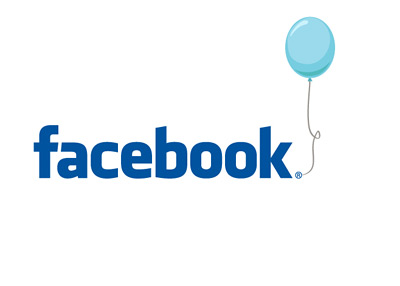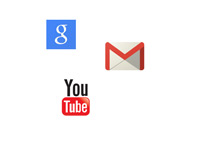Digital Sky Technologies Invests $200 Million Dollars in Facebook
 There is no question that Facebook is an incredibly useful tool that millions upon millions of people use everyday.
There is no question that Facebook is an incredibly useful tool that millions upon millions of people use everyday.However - is the company really worth $10 billion dollars?
Facebook announced earlier today that Digital Sky Technologies (DST) had purchased $200 million dollars worth of preferred shares in the company. This purchase of preferred shares represents a 1.96% equity stake in Facebook, and gives the company a valuation of approximately $10 billion dollars.
DST also announced that it was planning to offer to purchase "at least" $100 million dollars worth of common shares from existing Facebook common stockholders.
Techcrunch points out that when Microsoft originally invested in the company in October of 2007, Facebook had a valuation (based on the size and dollar amount of the investment) of around $15 billion dollars.
Since that point, the valuation of the company has fallen. Not a real surprise, especially given that the "Great Recession" began in December of 2007. All things begin equal, Facebook has held its value extremely well over the past year and a half.
Rumors were floating around over the past few weeks that Facebook had recently rejected an offer that would have given the company a valuation of around $8 billion dollars. This investment proposal would have given the investor a seat on Facebook's board - the company apparently quickly rejected the offer. According to Techcrunch, DST's investment does not require that Facebook give them a seat on the board.
That's all fine and well - however, there were many questions that immediately popped into my mind when I first heard about this transaction:
1. Isn't $10 billion dollars a rich valuation for a company that has never turned a profit?
2. Speaking of profits - when will Facebook actually make money?
3. How is Facebook planning on monetizing their rapidly expanding user base? Facebook users are notoriously allergic to advertisements and other potential monetization schemes.
4. Will Facebook eventually go public?
5. Will Facebook turn into another Myspace.com?
6. How does Facebook plan on generating enough revenue to make themselves a viable long-term business?
I love Facebook. I really do.
However, I have a hard time seeing how Facebook is going to monetize the time that I spend on the site every day. I don't log in to the site to click ads or purchase items online - I log in to check the status updates of my friends, upload photos, etc.
Google learned the hard way (through their purchase of Youtube.com) that having a massive user base does not necessarily translate into buckets of money. If Google is having a hard time monetizing their Youtube traffic (they have publicly admitted this), then how will Facebook? Logic would say that Facebook is not better equipped to monetize traffic than Google.
If Google can't figure it out, then how will Facebook?
Myspace.com had a tremendous amount of hype a few years ago. They had a rapidly expanding user base and were seemingly well-positioned to cash in on their traffic. They were sold to News Corp. for an eye-popping (at the time) $580 million dollars, and eventually signed a lucrative advertising deal with Google.
Since then, the hype has largely died down as Facebook and Twitter have taken over as the social networking sites of choice. From all indications, Google will very likely not renew their deal with Myspace. If they do renew, then it will be with dramatically more favorable terms for Google.
My point is - does Facebook have staying power, or will they end up being another Myspace or Friendster?
And most importantly to investors in the company - can Facebook monetize their traffic in a way that doesn't upset their faithful users?
We'll see. Interesting news today.
Source: Facebook Receives Investment from Digital Sky Technologies
Filed under: Internet Companies



